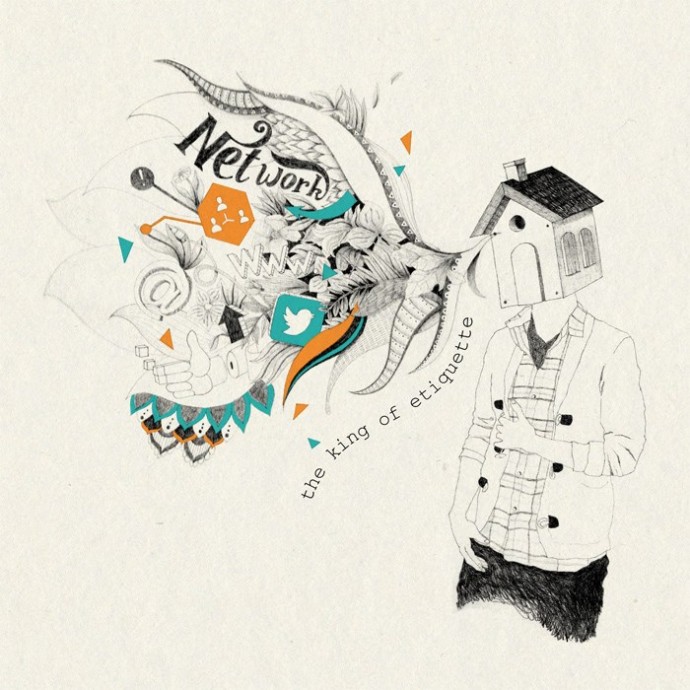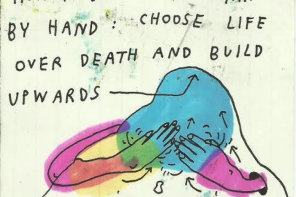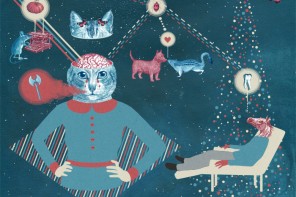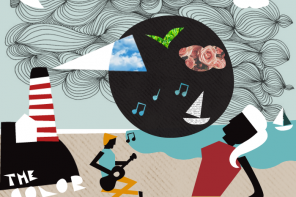Asperger syndrome is an autistic spectrum disorder characterised by difficulties in social and nonverbal communication. Differing from other autistic disorders, in that the linguistic and cognitive developments are relatively unaffected, those with the condition suffer with underdeveloped social skills. Imagine growing up and experiencing the world alongside your peers without an understanding of body language, conversation skills and etiquette. Unsurprisingly, it is not uncommon for children and teenagers with the condition to be on the receiving end of bullying and social ostracisation.
Dan, diagnosed with Asperger’s at thirteen, speaks to us about how he learned to cope with such situations and what led him to create improveyoursocialskills.com, a website aimed at helping others master the rules of social behaviour.
I feel like relationships are a big part of what makes life worthwhile and meaningful. A lot of people are locked out of relationships because they don’t have the social skills to know how to navigate this world of making small talk, meeting people, and making friends. I wanted to create a comprehensive practical online guide that would give people the opportunity to connect with others.
The guide is very personal to me because it is borne out of my own experience. I have something called Asperger syndrome, which is a condition which makes it difficult to learn social skills the way that other people do. Other people learn these skills naturally as children. By observing the world around them, they figure out how to interact socially. This does not happen for people with Asperger’s.
I was thirteen when I was diagnosed, and up to that point my life had been very difficult socially. I had had a lot of experiences of being bullied and of being excluded. Even in relationships where people were friendly with me, like with my family, it was still difficult.
I was aware in elementary school that other people didn’t like me. I didn’t know that the reason was because I was awkward and didn’t know how to socialize. People with Asperger’s find it difficult to hold a conversation and often don’t know what is and isn’t appropriate to say. Once in school there was this kid that I guess hadn’t taken a shower, so I told him, “You smell bad.” It did not register to me that it could be offensive or embarrassing to him. It was more a case of ‘here is this fact that I have observed—now I am going to communicate this fact’. That process of thinking it through and considering how my actions might be interpreted just didn’t exist for me.
Other characteristics of Asperger’s include an interest in very specific topics, and having unusual mannerisms and physical habits to help comfort or focus ourselves. I sometimes flap my arms around. I’ve learned to not do that now in public, but when I was in class, and the teacher started talking about something that excited me, I would start flapping my arms. You can imagine how that would cause me to be the target of some bullying.
Heightened sensitivity to certain sensations and odours is also relatively common among those with Asperger’s. For me, going to restaurants was difficult. The cacophony of noise of everyone talking was incredibly stressful, like sitting next to a jet engine. Everyone would be enjoying themselves and I would be deeply suffering.
My parents were always very supportive of me. During my first couple of years in school they realized that something was wrong. I was depressed and wasn’t getting along with other kids. They took me to a psychologist when I was seven or eight, who put me on Prozac. We didn’t know at that point that it was Asperger’s, but the Prozac helped at least to relieve the weight of sadness I had had for a long time.
This was back in the nineties, so there wasn’t the awareness of Asperger’s that there is today. My parents continued to research and eventually they figured out that Asperger’s seemed to describe me fairly well. Another psychologist made the diagnosis when I was thirteen. That was the first time that I encountered the term ‘Asperger’s’.
When you’re in a situation where people constantly reject you, it’s difficult not to internalize that and start rejecting yourself a little bit. Before, I had had this idea that I was inherently flawed. By getting the diagnosis, I was able to start defending against that self-rejection. It gave me the possibility to affect my situation by realizing that this is a thing I can work on. I could study those social skills that I lacked.
The psychologist gave me a list of all the social skills that people with Asperger’s typically struggle with, and so I thought, ‘Okay, this is my homework’. I took that list and very deliberately studied the social skills that I didn’t have. I thought to myself: I don’t understand body language; let me buy books on body language; let me figure out what people’s bodies are saying. I don’t know how to make conversation; let me read books on conversation; let me read books on small talk, on etiquette, on the polite thing to do in different circumstances. Let me figure out how to make this happen.
I would try and come away with several ideas I could practise that day and after some time, I started to improve. It started to make sense to me. I started being able to participate in a conversation and to know what I was supposed to say next. It helped to build a ‘social-skills mindset’, kind of like if you read lots of books about football, you’re going to have a better sense of what’s going on on the football field, even if you don’t actually play.
Finding communities that were tolerant of my awkwardness really helped me too, like my church community or the games store; places where awkwardness was sort of accepted. That gave me a space to practice.
The first time I noticed my progress was when a guest speaker came to one of my classes. During the interval, I had some questions and so we talked for a bit. I noticed after a while that, despite his face still pointing towards me, his feet and torso were pointing towards the podium.
I was able to deduce from that that he wanted to start the class back up. I ended the interaction and sure enough, he resumed the class. I realized that I would have missed that cue before, because I would have concluded that he had answered my questions, so clearly he would want to answer twenty more.
I started to realize the value of relationships. Before, my social interactions were limited to ‘let’s sort of do a thing together’, like a videogame, as that was all I could handle. But as I started to learn more about social skills, I started to learn about the value of relationships where you could share life together—I started to experience relationships which were deeper and more intimate and to see the value of them. That was incredible. Life is so much better when you’re able to do it with other people.
Having Asperger’s can certainly affect a romantic relationship. People with Asperger’s rely on explicit language in their communications as they have a lot of difficulties recognising things like sarcasm, turns of phrase and metaphors. If the partner with Asperger’s does not recognise what their partner is communicating because they aren’t communicating it explicitly enough, then you have more possibility for problems. Spontaneous romantic gestures come more rarely to someone with Asperger’s.
The biggest struggle I’ve had in my relationships is letting myself be awkward. I had to learn this skill-set of being very deliberate about what I say, of being very focused on what the other people are saying, and treating conversation as if it were this very difficult thing that I needed to focus on a lot. As my skills have grown, I’ve needed to focus less and it has become more automatic, but there is still this fear that if I’m not working hard on my conversations I’m going to miss something and make a mistake. The problem is, when you’re focused very hard on making a conversation, it can be a little less genuine. If you’re constantly filtering everything that you’re saying to make sure that you say something socially appropriate, and at the same time you’re monitoring what the other person is communicating, it makes it harder to be in the moment and to feel the deepest kind of intimacy with another person. I’ve had to work on my ability to just be present and to be okay if I make some sort of social mistake, to be willing to just bring my real self to my interactions and not filter as much as I feel I need to.
Asperger’s is a different way of being, not a worse way of being. It has a lot of challenges but many blessings and strengths too. There are many things about myself that I attribute to my Asperger’s that are very valuable to me, like the fact that I can separate my emotions from my decision-making much better than most people. I have a way of looking at the world that is unique and I think that is valuable. My Asperger’s is part of what makes me who I am and to remove it would change that. Even the really hard parts of my Asperger’s have ultimately given a lot of beauty to my life. If I could suddenly flip a switch and remove all traces of Asperger’s from my story, I think my life would be a lot less rich as a result.
For several years I had had this idea that everything I had learnt about social skills I could teach to other people. This was the beginning of improveyoursocialskills.com, which is one of the larger online resources for social skills in the world. My goal was to give people the guide that I wish I had had when I was thirteen and had just been diagnosed.
From running the website I’ve found the majority of people who read my site don’t have Asperger’s, which is surprising. Loneliness and disconnection, having problems with relationships and social interaction are human problems, not just Asperger’s problems. Perhaps social skills are more difficult for people with Asperger’s, but many more people struggle with finding a place to belong, and finding relationships where they can be close to other people. That has been the biggest eye-opener. There are so many people who have barriers that are blocking them off from meaningful relationships with others. I feel that if we take it upon ourselves to start tearing these barriers down, we will find that they fall very quickly.







